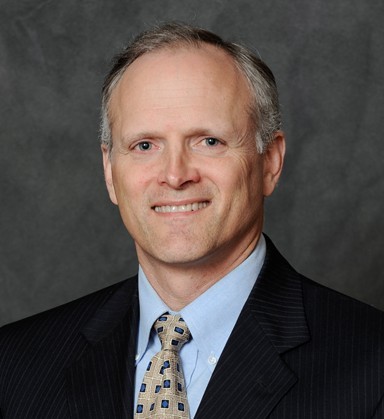Page 27 • (767 results in 0.022 seconds)
-
Dr. Seth Dowland, Seminar in Religion
welcoming environment to deepen my curiosity of constructive theology and encouraged me to explore other religions beyond Christianity. Alyosha Strum-Palerm “Civil Religious Revival in the Early Cold War” Abstract: The implications of a non-denominational Civil Religion are perhaps no more apparent than in the 1940s and 50s when a wartime geopolitical landscape meshed with conflicts surrounding economic systems, systems of government, social hierarchies, and a new definition of the moral establishment
-

Sophia Mahr ’18 analyzed how and why medical providers repeatedly and deliberately harmed people in the name of medical science by conducting non-consensual experiments on their subjects.
unethical human experiments: torture of Jews in Nazi concentration camps, the Tuskegee study of untreated syphilis in rural black men, and the coerced research and medical discrimination of LGBTQ individuals. Please note, the following images may be disturbing for some viewers. (click to open) Mahr argues that the systems in place, which have evolved over time to protect patients, continue to be violated in a dangerous trend. “This is not an isolated reality,” she said during a campus presentation of
-

When we first catch up with environmental advocate Andrew Schwartz ‘07, he’s preparing for a massive road trip with his wife, Emily, and 8-month-old daughter, Maja. They’re headed east to visit Emily’s family in Illinois. But the 36-year-old Schwartz’s life has also been a journey,…
isn’t enough—we need to improve life for everyone around us, too.” While at PLU, Schwartz worked at the Boys and Girls Club, and was a big buddy at nearby James Sales Elementary school. Schwartz majored in sociology at PLU, and in classes with professors like Dick Jobst and Anna Leon Guerrero, he was asked challenging questions, and examined systems of oppression, discrimination, and racism. Like nesting dolls in reverse, he saw how vast the world’s systems could be. “I didn’t have either
-
Zoom Webinar Series on Diversity, Equity, Inclusion and Respect (DEIR) and co-sponsored by Women’s Chemist Committee Thursday, April 27, 2023 4-5pm Pacific Time Shaping the Future Through Science: A Personal Story of Innovation, Education, and Community Building Speaker: Prof. Princess Imoukhuede, PhD Hunter and Dorothy…
. Louis, and the University of Washington; I have developed a unique approach to systems biology research that has the potential to improve labor and delivery outcomes in women’s health. Along this journey, I have been guided by core values that have helped me make a broader impact in the scientific community. As I discuss my journey and current work as the chairperson of my department, I hope to inspire others to follow their passions, values, and use their talents to make a difference in the world
-
Gender, Sexuality, and Race Studies (GSRS) at PLU is an interdisciplinary major that requires three core courses (GSRS 201, 301, and 499), along with 24 hours of electives in at least four other
studies chair about this option before the course begins (when possible) and provide syllabi and assignments to the GSRS Executive Committee for approval upon completion of the course.Learning OutcomesStudents who take Gender, Sexuality, and Race Studies courses at PLU will learn how to: Understand the social construction of gender, sexuality, and race. Analyze systems of privilege and oppression. Assess the intersectional relationship between knowledge production, identities, and power. Communicate
-
General Use Policy Pacific Lutheran University students, faculty, and staff are responsible for legal and ethical use of computers and the network. Activities considered to be in conflict with this policy include, but are not limited to, the following: Spreading viruses or causing disruptions on the network. Unauthorized access to restricted or personal computers, data,...
mailings are the President, Provost and V.P. for Admission and Student Life Viewing, printing, storage, display, or playing of sounds of any sexually explicit or potentially offensive materials in a way that may create an offensive working or learning environment. Excessive use of paper, toner, disk space, or other resources. Monopolizing systems so that others are prevented from use. Overloading computers or networks with excessive data. Activities in violation of faculty and staff employment
-
3.2.1 Data Classification Data will be classified based on the following: Public data are the least sensitive information and are acceptable for public consumption. Internal data are moderately sensitive information. All university data are considered internal unless classified otherwise. Restricted data are highly sensitive information for which an unauthorized disclosure may result in identity theft...
. 3.2.2 Roles & Responsibilities All members of the Pacific Lutheran University community are responsible for the protection of the confidentiality, integrity, security, and availability of university data. Data Owner: PLU maintains ownership of all data stored in administrative information systems. Data Trustee: Data trustees are senior university officials (or their designees) who have planning and policy-level responsibility for data within their functional areas and management responsibilities for
-
The college houses Anthropology, Economics, English, Global & Cultural Studies, History, Philosophy, Political Science, Religion, Sociology & Criminal Justice, and the Master of Fine Arts in
Interdisciplinary Programs including Chinese Studies, Gender, Sexuality & Race Studies, Global Studies, Holocaust & Genocide Studies, Native American & Indigenous Studies, and Publishing & Printing Arts minor also reside in the college. Programs in the College of Liberal Studies engage students in the critical study of human existence and social systems across diverse cultures, time periods, and environments using a range of academic tools and methods.Vision Statement: Students in the College of Liberal Studies
College of Liberal StudiesXavier Hall - Suite 152, Office 155 Tacoma, WA 98447 -
Information Literacy Outcomes Critique and evaluate information to contribute to the construction of knowledge and make it stronger.
context plays a role. (Aligned to Integrative Learning Outcomes: Valuing, Critical Reflection) Identify how scholarly publication practices provide and/or hinder access to scholarly information, and why some groups/individuals may be underrepresented or systematically marginalized within the systems that produce and disseminate information. (Aligned to Integrative Learning Outcomes: Valuing, Critical Reflection) Rationale for Learning Outcomes In developing these information literacy outcomes, the
-

Master of Business Administration | sweberva@plu.edu | Vic Sweberg has been an Adjunct Professor in the Pacific Lutheran University’s School of Business from 2013 to the present. He has taught a variety of undergraduate and graduate-level courses. Prior to 2013, he had a successful career with The Boeing Company for nearly 30 years. At Boeing, he served in many capacities and held assignments in program management, strategy development, business development, and leading a variety of innovative growth areas. As an Executive during the latter part of his career, he formed and led a new division inside of Boeing, the Unmanned Airborne Systems (UAS) division, reporting to the President of Boeing Military Aircraft.
innovative growth areas. As an Executive during the latter part of his career, he formed and led a new division inside of Boeing, the Unmanned Airborne Systems (UAS) division, reporting to the President of Boeing Military Aircraft. Here he was responsible for managing 1200 personnel and Boeing’s portfolio of unmanned airborne capabilities, serving customers around the globe, including operations in a variety of countries. He also served as the Director of Advanced Mobility, Surveillance & Engagement
Contact Information
Do you have any feedback for us? If so, feel free to use our Feedback Form.


